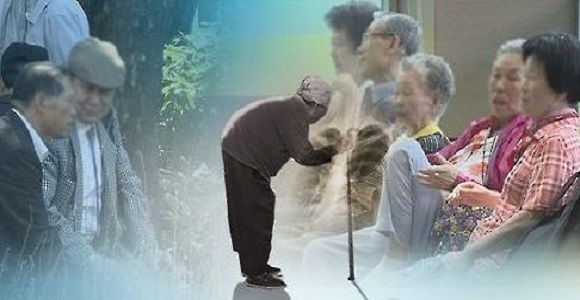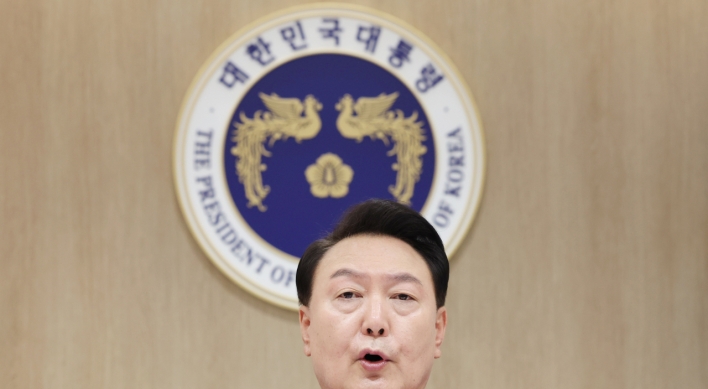Population aging, low birthrate to raise fiscal burden: report
By Catherine ChungPublished : Aug. 10, 2017 - 10:06
South Korea's fiscal spending is expected to rise by about 3 trillion won ($2.63 billion) annually over the next five decades due to its rapid population aging and low birthrate, a report said Thursday.
Asia's fourth-largest economy is estimated to fork up an additional 2.8 trillion won per year between 2016 and 2065 due to the country's demographic change, according to the report published by the Bank of Korea.
The report is based on 2009-2013 data from the Organization for Economic Cooperation and Development. The report also assumes that South Korea's fiscal spending is maintained at 32 percent of its gross domestic product amid no inflation, with its economy growing 1 percent each year.
According to the findings, population aging is projected to increase government spending on health care and welfare by an annual average of 5.6 trillion won over the cited period.
Affected by the low birthrate, however, the government's education expenditures are forecast to drop by 500 billion won annually, with fiscal spending on general public service and other areas sinking by 2.3 trillion won.
Asia's fourth-largest economy is estimated to fork up an additional 2.8 trillion won per year between 2016 and 2065 due to the country's demographic change, according to the report published by the Bank of Korea.
The report is based on 2009-2013 data from the Organization for Economic Cooperation and Development. The report also assumes that South Korea's fiscal spending is maintained at 32 percent of its gross domestic product amid no inflation, with its economy growing 1 percent each year.
According to the findings, population aging is projected to increase government spending on health care and welfare by an annual average of 5.6 trillion won over the cited period.
Affected by the low birthrate, however, the government's education expenditures are forecast to drop by 500 billion won annually, with fiscal spending on general public service and other areas sinking by 2.3 trillion won.

The report also predicted South Korea's tax revenue, excluding the consumption tax, to dip approximately 28 percent over the next five decades as the two negative factors will reduce the nation's working-age population, or people aged 15 to 64.
According to an OECD estimate, the working-age population is forecast to decline 6.8 percent over the next decade and 17.8 percent after 20 years.
"Demand for fiscal spending is likely to increase amid falling tax revenue as the country's population aging is projected to last for a considerable period of time," the report said. "The government needs to come up with long-term countermeasures."
South Korea has been gripped by fast population aging. It is tipped to become an aged society in 2017, with the ratio of people aged 65 and older hitting 14 percent of its 50 million population. It is forecast to become a super-aged society in 2026, with the figure hovering above 20 percent.
Despite government efforts, the country also suffers from a chronically low birthrate. It has one of the lowest birthrates among the OECD members. (Yonhap)



















